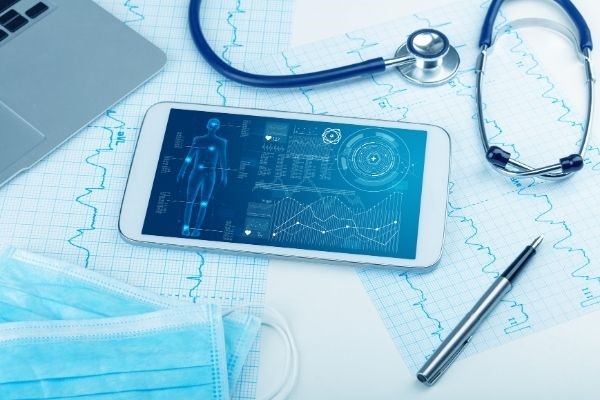Health care has always been a field that must face a multitude of challenges. But it has always risen to meet them thanks to the hard work of health care professionals and technological innovation. Today, there are more challenges than ever, but fortunately, technology designed to make health care better is becoming more accessible across the board.
Electronic Record Keeping
Record keeping is a humble part of any field, but its importance cannot be overstated in the field of medicine. Record keeping is the foundation of good communication between health care workers and patients, pharmacies, and other providers. Without it, hospitals are more prone to medication and treatment errors, which can have disastrous implications. Electronic record keeping reduces these errors, greatly improving patient safety.
Remote Patient Monitoring
In the wake of the global pandemic, the demand for at-home health care has increased dramatically, and health care facilities have responded with advances in remote patient monitoring. This technology equips patients to take their own vitals and other pertinent stats at home and automatically sends the information to doctors. This cues doctors to any sudden changes so that they can act immediately, without patients needing to leave their homes if nothing is wrong.
3D Printing
Since its advent in the 1980s, 3D printing has revolutionized medicine in a myriad of ways. Most famously, it provides a way to create low-cost, personalized prosthetics for people who need them. But it also reduces the time and cost of making new health care equipment by offering a fast, cheap way to create new parts.
Lesser-known and more astonishing is the development of bioprinting, an extension of 3D printing that produces living material such as tissue, vessels, and bone. This technology is still in development, but the hope is that, in the future, medical personnel will be able to print whole organs for people who need transplants.
Nanotechnology
Nanotechnology manipulates materials on a nanoscale. One nanometer is 1/100,000th of the width of a strand of human hair. This means materials are being manipulated on a molecular scale. The ability to operate on this level has limitless applications for medicine, from noninvasive internal examinations to the creation of electronic pills that release medicines to certain types of cells. This technology could even repair broken strands of DNA. This science is still in its early development, but it’s clear it has the potential to greatly add to technology that is making health care better today.















